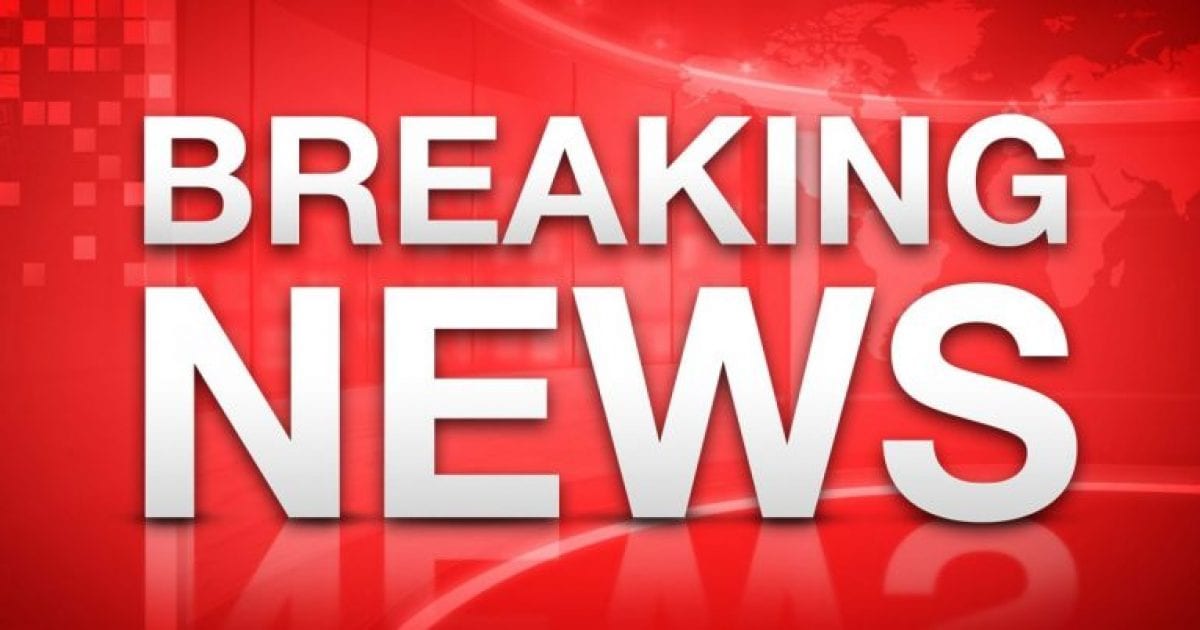While Christian churches were forced to lockdown during the COVID-19 pandemic, a new report shows that a New York mosque is still open for daily prayers.
It appears that the same level of scrutiny has not been aimed at the Mosque of Jesus, Son of Mary, which was once a Catholic church.
The mosque’s prayer room has been covered completely in plastic with strategic slots for ventilations.
After each daily prayer, volunteers disinfect the room to minimize the risk of transmission.
The last prayer is at 9:45 pm, after which the room receives a deep cleaning before the mosque closes its doors for the night.
The report comes after widespread coverage of Christian pastors being arrested, Easter worshipers being ticketed, and drive-in services being banned.
More details on this developing story below:
Up to 10 people are allowed into the mosque at a time.
New York state's executive order broadly bans all "non-essential gatherings of individuals of any size for any reason."
This executive order has been leveled towards Christian churches, but the mosque has not faced the same level of scrutiny.
According to Syracuse, Ramadan gatherings are canceled, but daily prayers have been ongoing.
Irfan Elahi is an asbestos abatement expert who worships at the Mosque of Jesus, Son of Mary on the North Side.
He used his skills to create a prayer room covered in plastic with special ventilation that allows daily prayers to continue in the 116-year-old former church, as the holy month of Ramadan nears.
The room is lined with plastic, and two machines siphon air out of the room to create negative pressure. Air in the room is recycled every four minutes. Elahi used the materials and expertise from his day job to create what he called a “clean room.”
About 10 worshippers in masks are allowed in at a time, though rarely do that many show up. They stand far apart from each other as they follow a prayer leader standing on a plastic-covered prayer rug.
Before they arrived, Issa Hamadi, a neighbor, sang the call to prayer, which echoed around the empty mosque’s 50-foot ceilings. He walks from his home to do the call five times a day. This time, he wore a fabric mask and raised gloved hands to his head.
Volunteers disinfect the room after each prayer, and the room gets a deep cleaning after the last prayer around 9:45 p.m., Elahi said.
The mosque regularly draws hundreds of neighborhood Muslims for Friday prayers and meals during Ramadan, which begins April 23. But Friday prayers are canceled and likely so are the Ramadan gatherings, because of the coronavirus pandemic.
A Syracuse.com reporter and photographer were allowed into the room for a prayer at 1:30 p.m. Monday. The small group of Muslims praised Allah and went through their prayers, mostly in silence, as the fans whirred faintly.
“May God accept our prayers and prevent all diseases from spreading around the world,” the prayer leader said in Somali, according to a translator.
Elahi said mosque leaders were worried that Muslims in the neighborhood, many of whom are refugees who speak limited English, would panic if their daily prayers were canceled. Their first impulse in times of crisis is to visit the mosque more and pray harder, he said.
Many online commenters are upset over the state's apparent inequal policy enforcement.
Christian church goers were criticized by local and state officials as well as the national media for attending drive-in church services.
Yet few national news organizations have chosen to report on this story from Syracuse, New York.
Some counties in New York have even banned drive-in services, where members are able to attend church service in their cars.
Drive-in services allow members to stay connected to their church community while also practicing social distancing by remaining inside their own vehicles.
The disparity between how Christian churches have been forced to shut down but the Syracuse mosque is permitted to stay open has raised eyebrows.
The Blaze has more on the inconsistent application of lockdown orders:
While it should be noted that the mosque has gone to great lengths to limit attendees' exposure to the virus by covering the prayer room in plastic and installing a special ventilation system, it is unclear as to how that exempts the mosque from the government mandate.
Yet instead of facing criticism for continuing to gather, the mosque was commended by the news outlet for its efforts to "keep the faith" during the pandemic, especially as the Muslim holy month of Ramadan approaches.
According to the report, Irfan Elahi, an asbestos abatement expert who worships at the mosque, said that when the outbreak started, mosque leaders in the area were worried that Muslims would panic if daily prayers were cancelled.
Over the past few weeks, churchgoers in many states have been prohibited from gathering and, in many cases, have been punished for doing so despite government orders.
In Mississippi, some churchgoers received $500 fines for sitting in their vehicles in a church parking lot listening to a radio broadcast of the service. In Kentucky, nails were allegedly scattered at the parking lot entrances to prevent people from attending the Easter service. A northern California county even outlawed singing during church livestreams unless people are in a home.
In New York City, Mayor Bill de Blasio threatened to "permanently" shut down churches and synagogues if they refused to comply with the government's shelter-in-place order.
New York has been the hardest hit by the COVID-19 pandemic.
It makes sense to promote social distancing practices, but observers note that "churches and synagogues" are regularly threatened, but mosques are hardly mentioned.
Meanwhile in Pakistan, Imams have overruled the country's lockdown orders, allowing mosques to remain open during Ramadan, which begins April, 23.



Join the conversation!
Please share your thoughts about this article below. We value your opinions, and would love to see you add to the discussion!